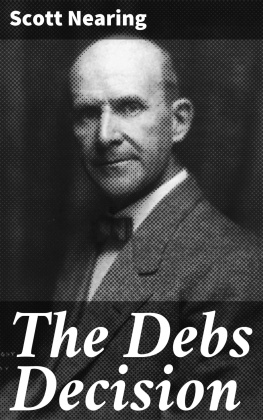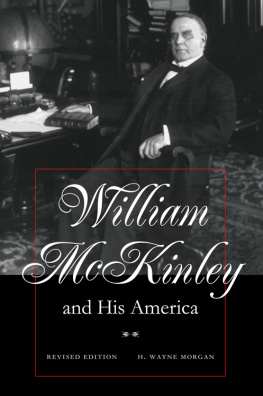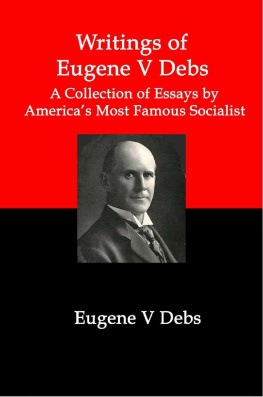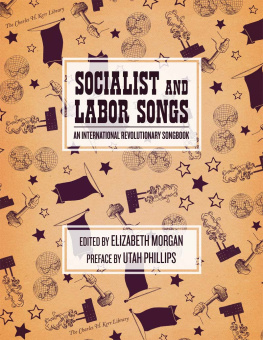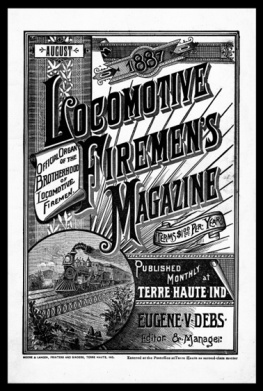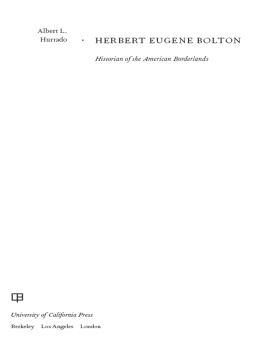Phocion Publishing 2019, all rights reserved. No part of this publication may be reproduced, stored in a retrieval system or transmitted by any means, electrical, mechanical or otherwise without the written permission of the copyright holder.
Publishers Note
Although in most cases we have retained the Authors original spelling and grammar to authentically reproduce the work of the Author and the original intent of such material, some additional notes and clarifications have been added for the modern readers benefit.
We have also made every effort to include all maps and illustrations of the original edition the limitations of formatting do not allow of including larger maps, we will upload as many of these maps as possible.
EUGENE V. DEBS
Socialist for President
H. WAYNE MORGAN
Eugene V. Debs was originally published in 1962 by Syracuse University Press, Syracuse, New York.
Preface
Few Americans today remember a time when the Socialist Party of America was a power of any proportions in politics. They have forgotten or never knew that a scant two generations ago the socialists were the third party of American politics; that they were a considerable force in local and state politics; and that many of the radical policies which they advocated have become standard fixtures in the American system.
In mid-twentieth century, the American socialists have fallen on evil days. The First World War divided the party into quarreling sects which sapped its remaining life and ruined its cohesiveness as an organization. The disillusionment that followed the war, the collapse of progressive sentiment, the frivolity of the 1920s, the Great Depression and its cure, the New Deal, the Second World War, a permanent cold warthese have served in their separate and collective ways to deaden any popular appeal the once important Socialist Party of America might have had. At the height of its influence in 1912, the partys presidential candidate polled nearly 6 per cent of the vote in the face of two other powerful liberal vote-getters; forty years later the vote was hardly a courtesy one. In 1912, more than a thousand socialists held elective office; forty years later the number was close to zero.
If the Socialist Party seems to have no future, it at least has a past. No student of American history of the period between 1890 and 1920 can help being struck by the immense quantities of socialist literature printed and distributed. Popular as well as learned magazines before the World War were filled with speculation about the future of socialism. Politicians as well as scholars worried that socialism would invade American society and triumph unless checked. Hundreds if not thousands of leading community men were interested in the theory and often in the practice of socialism, and they sometimes translated that interest into a vote for Eugene Debs between 1900 and 1920.
The history books that extol the campaign exploits of William Jennings Bryan, Theodore Roosevelt, and Woodrow Wilson often fail to record that the most famous American socialist, Eugene Victor Debs, waged five presidential campaigns between 1900 and 1920. Historians have failed to exploit the rich body of material left behind in the wake of those campaigns, or to show the extent to which socialist electioneering succeeded or influenced American life.
Whatever success the Socialist Party had in national politics between those years was due in large part to the man who carried the partys banner. Buoyed up by the waves of protest and reform of those years, Debs shrewdly capitalized on new forces to present his message to hundreds of thousands of Americans during the course of his campaigns. No man gave more to American socialism than he. Despite his romantic sentimentality and lack of profound insight into the forces at work in his time, Debs was a thoroughly practical man, a politician in close touch with the masses.
My purpose in writing this book is to chart the course of the socialists in national politics between 1900 and 1925. I have attempted to write neither a biography of Debs nor a history of American socialism. The socialists employed political methods, and gained successes that are in themselves well worth studying. Aside from the intrinsic interest of socialist politics, the partys successes proved two things: the mission of minor parties in American history has been to force major parties to accept the least radical portions of their programs; and the socialists succeeded in a free society, a thing which is no small tribute to both the socialists themselves and their opponents. Though suffering much persecution, which ultimately contributed to the partys demise, the socialists nevertheless worked in a remarkably free atmosphere during their heyday between 1900 and 1912. Their history in American politics is not essentially one of suppression, but of hard work and at least limited success.
I have been assisted in preparing this book by many people and institutions. I wish to thank Mrs. Sylvia Angrist, executrix of the estate of the late Miss Nina Hillquit, for permission to quote from the papers of Morris Hillquit. I wish to thank especially the staffs of the Bancroft Library at the University of California at Berkeley; the Tamiment Institute in New York, formerly the Rand School of Social Science; the manuscripts division of the Library of Congress; the newspaper division of the Library of Congress; Miss Mattie Russell and her staff at Duke University; the staff of the Denver Public Library; and Miss Josephine Harper and her staff at the State Historical Society of Wisconsin. The staffs of the Honnold Library in Claremont, California; the Arizona Pioneer Historical Society in Tucson; and the State Historical Society of Colorado in Denver also gave me their time and cooperation. Portions of this work have appeared in The American Quarterly, Mid-America, and The Indiana Magazine of History, and I am indebted to the editors of those journals for permission to reprint that material here. I wish also to thank Miss Michele Vandersyde of the Syracuse University Press, whose untiring editorial labors have greatly improved the text. For whatever errors may remain, I alone am responsible.
H. WAYNE MORGAN
Austin, Texas
I. Eugene V. Debs and the Rise of American Socialism
Liberty, be it known, is for those only who dare strike the blow to secure and retain the priceless boon. Eugene V. Debs, 1895
The very character and principles of Eugene Victor Debs made a Debs legend inevitable. No man of such warm temperament, colorful personality and unorthodox beliefs could escape becoming a legend in America. Born in the great, frontier Indiana of 1855, he seemed to possess from birth the traces of radicalism that spring so often from that great watershed of discontent. Named after two radical writers favored by his Alsatian father, Eugene Sue and Victor Hugo, the boy seemed destined from the first to follow unorthodox lines.





